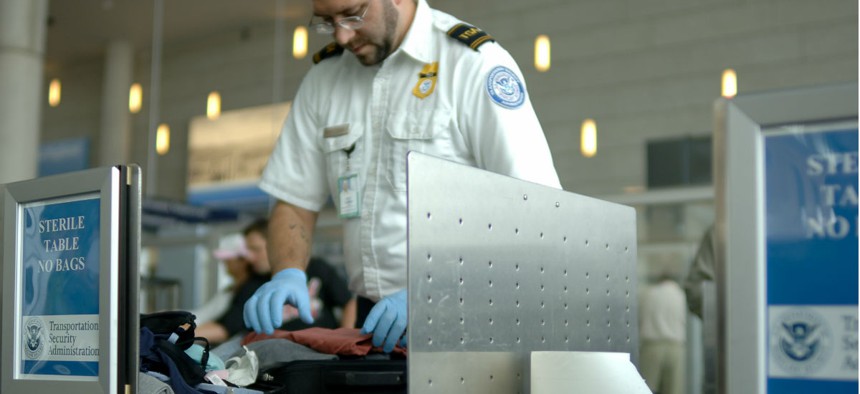TSA Buyers Reach Out to Minority Small Business Contractors
Homeland Security procurement chief touts her office as “the organization” for businesses.
Program managers at the Transportation Security Administration tend to look to large companies when shopping for goods and services, Latetia Henderson, assistant administrator of TSA’s Office of Acquisition, told an industry day gathering on Tuesday. “We struggle to get them to understand small businesses.”
Mingling with 26 small business contracting firms attending the Contract Connections town hall at TSA headquarters in Arlington, Va., Henderson and top Homeland Security procurement officials stressed their commitment to buying products from small businesses for “the crux of what TSA does” in the field, such as explosive trace detection, intermodal training and call centers.
“It’s like going to a hotel,” Henderson told the mostly minority small business entrepreneurs at the event sponsored by American Express OPEN (which this year paid all presenter’s booth fees). “You can go to the Marriott or a nice cute hotel that will do it all for you.”
Soraya Correa, the chief procurement officer for Homeland Security Department, lauded small business as “the backbone of the economy in job creation, innovation and the best ideas.” She praised firms that qualify for Historically Underutilized Business Zone set-asides as part of the department’s strategic sourcing and achievement of “front-line results.” Her example: The Federal Emergency Management Agency’s current rush to deliver supplies to victims of flooding in Louisiana.
“Our program managers are looking for ways to do accelerated procurements with companies with portfolios that are aligned with ours,” Correa said. “We want to understand what motivates you, what attracts you, how to do business with you. And we get that it costs a lot of money to bid,” she added, reciting a common frustration among contractors that they expend significant resources to deliver a proposal but then never hear back from government officials.
Since her arrival at DHS in January 2015, Correa has been staging “reverse industry days,” training events that enable contractors to meet with agency contracting and program staff to explain how companies approach contracting opportunities. She also has arranged acquisition innovation roundtables and is preparing guidance for small businesses. “We are committed to being the organization in government you want to do business with,” she added.
Anthony Bell, who heads the DHS Office of Small and Disadvantaged Business Utilization, reminded the industry representatives to watch out as the Small Business Administration implements loosened limits on eligible subcontractors and expands its mentor protégé program.
Robert Boone, director of TSA’s Office of Small Business Programs, explained to Government Executive why the agency holds the industry day at TSA headquarters. The program managers, who know the coming contract requirements, are more likely to come downstairs and see the vendors’ capability statements for themselves, he said.
Image via Carolina K. Smith MD/Shutterstock.com.




